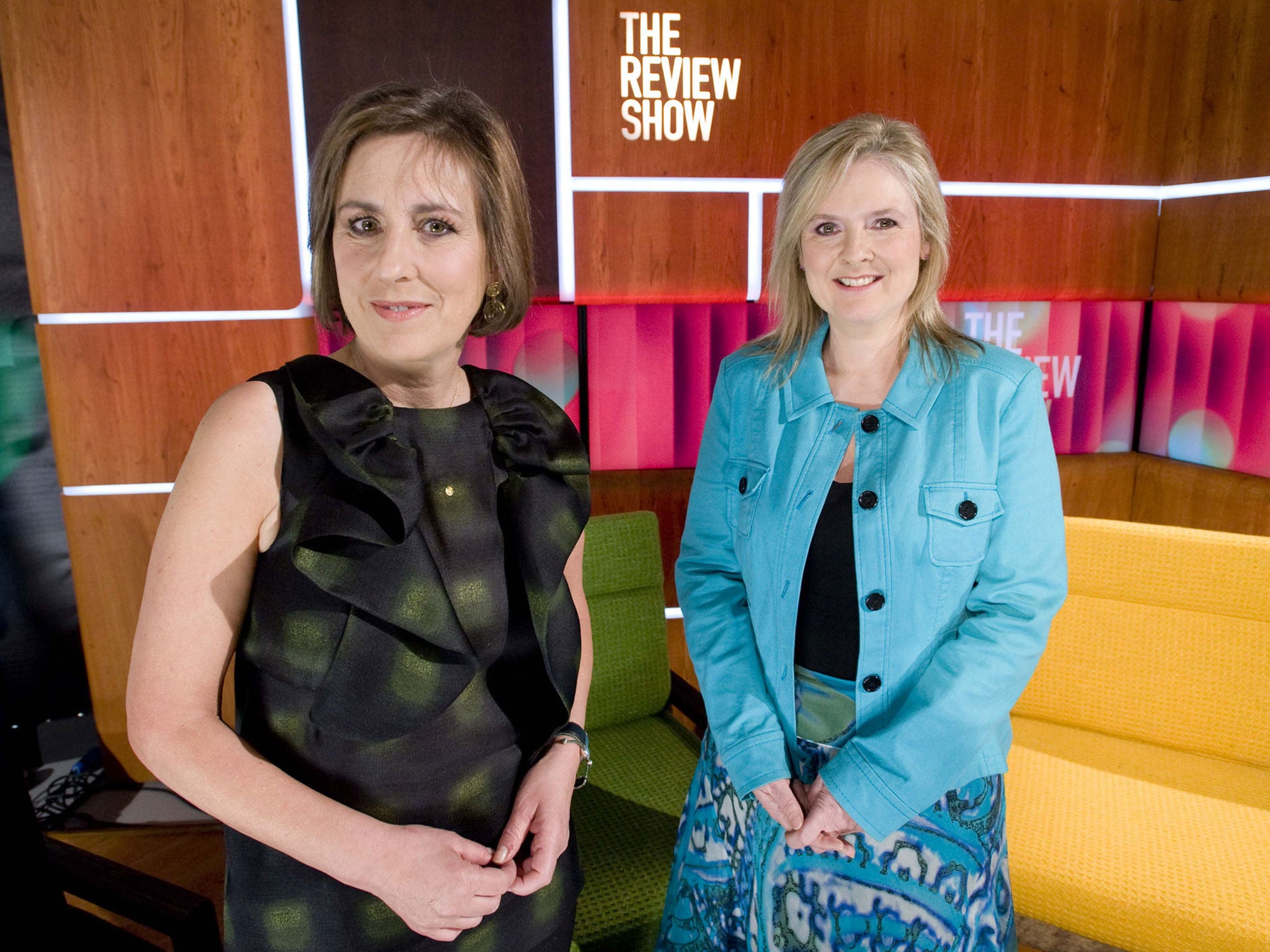The end of BBC TV's The Review Show: It’s OK. After 25 years, you can stop hurling things at the TV
‘Review Show’ regular Natalie Haynes on the series that came to an end on Sunday night

Your support helps us to tell the story
From reproductive rights to climate change to Big Tech, The Independent is on the ground when the story is developing. Whether it's investigating the financials of Elon Musk's pro-Trump PAC or producing our latest documentary, 'The A Word', which shines a light on the American women fighting for reproductive rights, we know how important it is to parse out the facts from the messaging.
At such a critical moment in US history, we need reporters on the ground. Your donation allows us to keep sending journalists to speak to both sides of the story.
The Independent is trusted by Americans across the entire political spectrum. And unlike many other quality news outlets, we choose not to lock Americans out of our reporting and analysis with paywalls. We believe quality journalism should be available to everyone, paid for by those who can afford it.
Your support makes all the difference.When The Review Show – formerly Newsnight Review, The Late Review, and before that The Late Show – went out on Sunday night on BBC4, it marked the end of 25 years of critical debate on BBC television. Though at least it did so with Paul Morley and Sarah Churchwell discussing the X Factor musical I Can’t Sing – a bang about a whimper.
You may see this as no loss: no more snooty cultural pundits missing the point of popular films and books. No more heated discussions about liminality and otherness in a play, when all you really want to know is if it’s any good. No more Tony Peanuts, in Adam and Joe’s unimprovable pastiche of the programme.
The show always had its detractors. I appeared on it dozens of times, and I know it routinely provoked between 10 per cent and 100 per cent of its audience to hurl things at the telly and question the qualifications of everyone involved. But I’ll miss it terribly. That’s partly because of the blast I’ve had working on the show for the past seven years, during which the BBC has sent me everywhere from the Cannes Film Festival to pitch-black caves beneath Waterloo station. Where else could I have discussed coprophiliac Nazis with Michael Gove? Unless my memory is awry, he described the book in question as “a boy thing”. I feel that explains a lot.
On what other programme would the film director Kevin Smith have worn a dressing gown throughout, prompting fevered Twitter speculation that it was some kind of Hitchhiker’s Guide tribute (it wasn’t)? And how else would I have met the singer of the first record I ever bought (Kevin Rowlands of Dexy’s Midnight Runners) and been too shy to speak to him for an hour? And all that before they sent me to film a short piece in the home of a man who had converted his entire flat into the bridge of the Starship Enterprise.
When I filmed the penultimate show last month, we were pretty sure it was coming to an end. The programme sustained a mortal blow last year, not because it moved from BBC2 to BBC4, but because it went from a weekly slot to a monthly one. No one really knew when it was on any more. The certainty that you would find it, week in and week out, after Newsnight and before Later With Jools Holland, was gone. The guarantee that people you either loved or hated would be talking about a film you might want to see tomorrow night was gone too. Reviewing a month’s worth of stuff at a time gave the programme a sketchy, magazine feel, lacking the urgency it had during the years when it was broadcast live.
The programme lost 90 per cent of its audience when it left BBC2. It’s limped on for another year, but the damage was done. The BBC’s new commitment to the arts is exciting, but it is mainly focused on performance and documentaries. This is great for theatre and art fans but not so good for book nerds.
There is now almost no discussion about books on BBC television at all, which is a pity when the proliferation of book groups suggests that more of us than ever enjoy reading and talking about books.
If you want to hear about a broad swathe of culture – from art shows at Tate Liverpool to West End theatre openings – you’ll need to tune into Radio 4 instead. Saturday Review and Front Row are still thriving, and reviewing everything from opera to video games, six nights a week between them. But those nights in front of the TV wondering what the hell I and my fellow panellists were on about? Sadly, they have gone.
Join our commenting forum
Join thought-provoking conversations, follow other Independent readers and see their replies
Comments